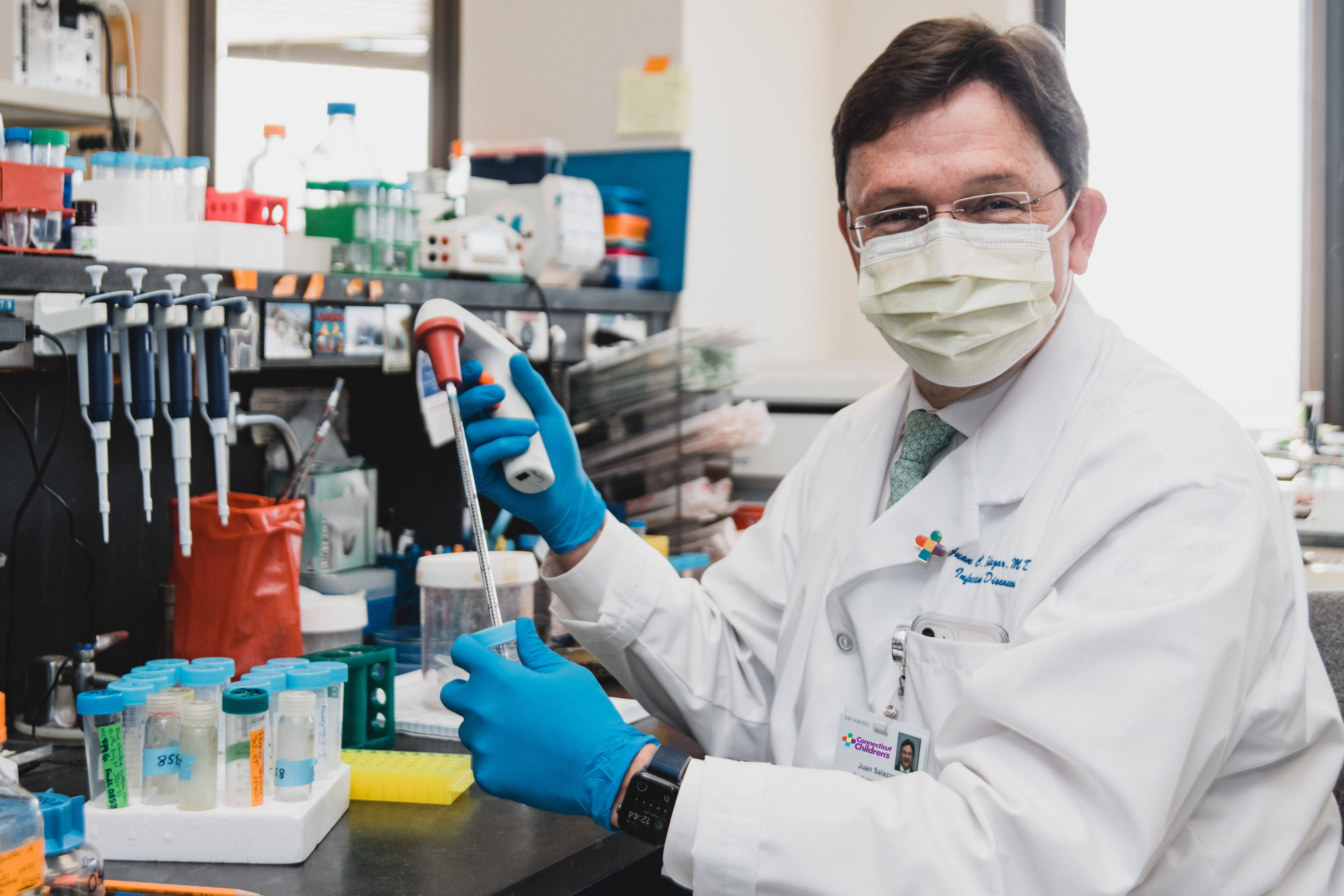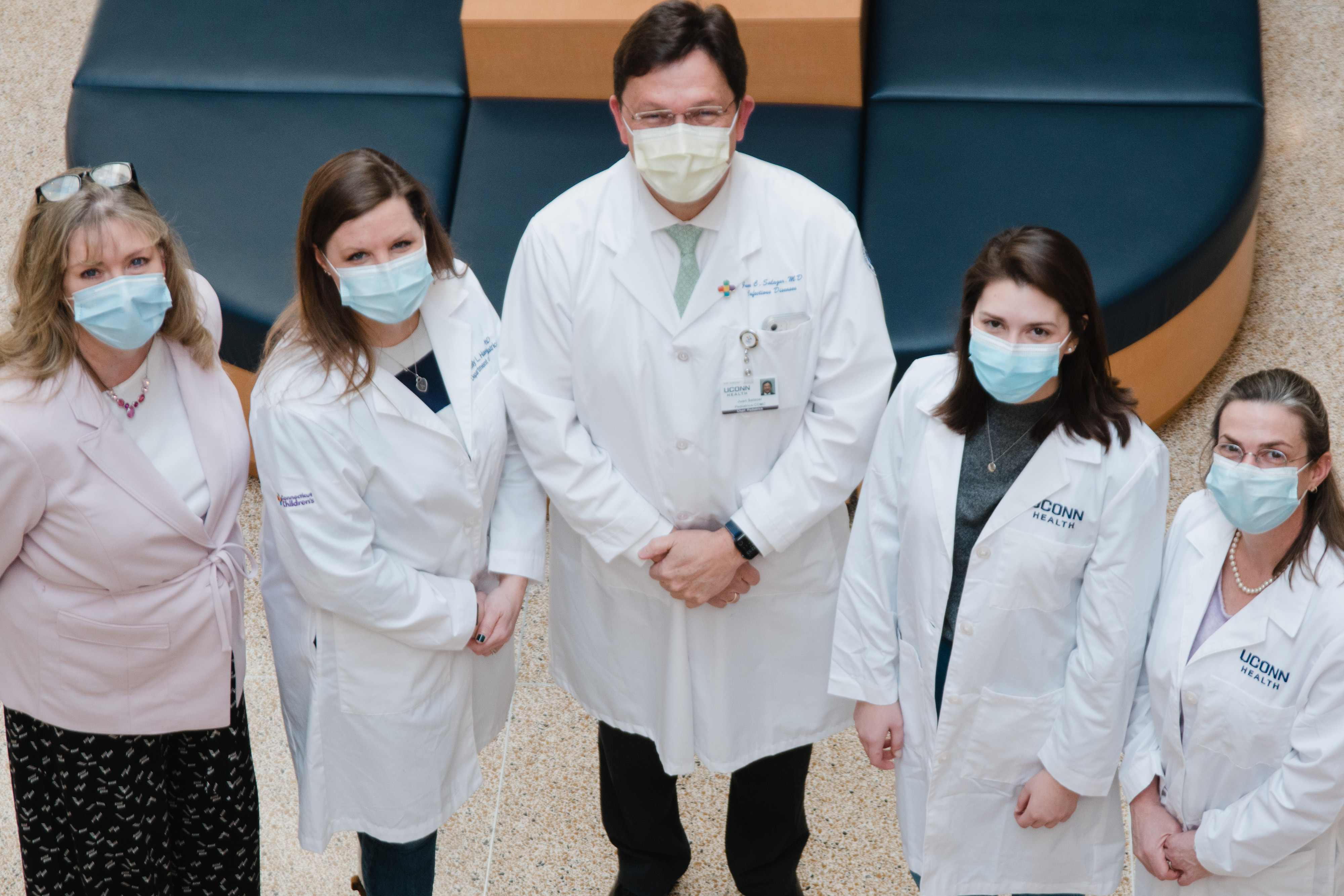Hartford, CT (Jan 12, 2023) - The National Institutes of Health (NIH) has awarded Juan C. Salazar, MD, Physician-in-Chief at Connecticut Children’s and expert in infectious diseases and immunology, one of eight research grants to refine new technologies for early diagnosis of severe illnesses resulting from SARS-CoV-2 (COVID-19) infection in children. The new awards follow grants issued in 2020 to foster methods for diagnosing children at high risk for Multisystem Inflammatory Syndrome in Children (MIS-C), a rare, severe, and sometimes fatal after-effect of SARS-CoV-2 infection or exposure in children.
Latest Articles

$1 Million Gift from Big Y Supports Connecticut Children's New Clinical Tower and Expanded Pediatric Services

A New Era of Care Begins: Connecticut Children’s Celebrates the Opening of the New Clinical Tower


